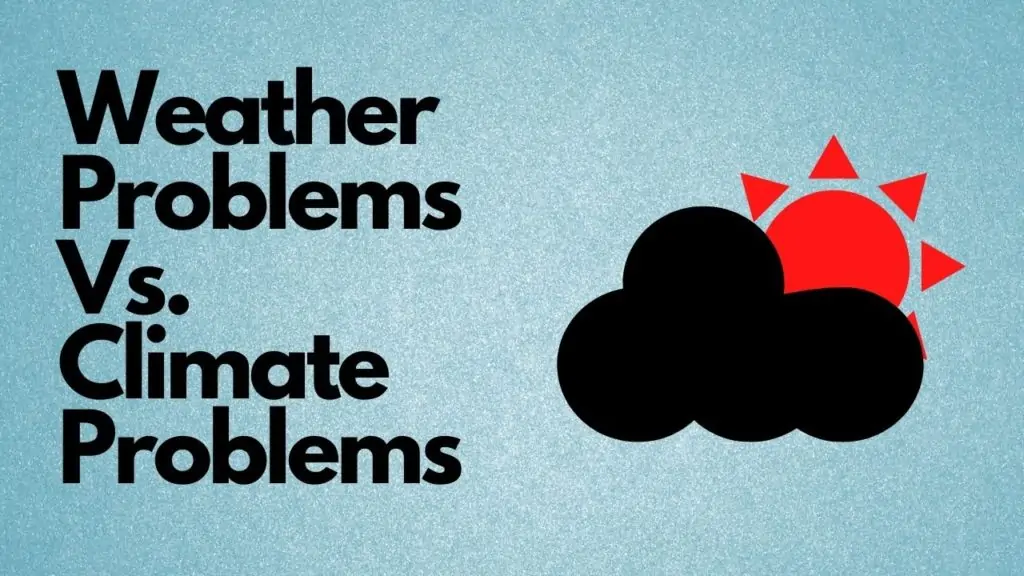
Weather and climate are sometimes used interchangeably, but they’re different terms.
Weather refers to short-term conditions of the atmosphere: “It’s raining in Boston today, and the temperature is around 55 degrees Fahrenheit.”
Climate refers to long-term conditions of the atmosphere: “Summers in Boston are usually warm and humid, and the temperature ranges between 70 and 90 degrees Fahrenheit.”
Climate is the average weather over time during a specific period. It’s what you’d expect to get on a day during a season. Weather is what you actually get.
The difference between those two terms is a great analogy for how to think about business problems in general.
Weather problems are “one-off” challenges. Climate problems are “chronic” ones.
Here are a couple of examples:
- Team Member Performance: When someone on the team is not performing up to standards, is that because of a weather problem (a bad day due to extra pressure) or a climate problem (continuously missing deadlines)?
- Sales Strategy: When sales dipped last quarter, was that because of a weather problem (half the sales team was out of the office), or a climate problem (customers are shifting from product-based to service-based purchases)?
This analogy is also a great way to think about personal challenges and aspirations:
- Job & Career: Are you miserable in your current job because of a weather problem (had a rough week or client) or because of a climate one (you’re generally unhappy with what you’re doing)?
- Diet & Exercise: When you ate a ton of junk food and barely moved, was that because of a weather problem (you had a two-week vacation with family) or because of a climate problem (you had dessert nearly every day and avoided exercise during the last six months)?
It’s not always easy to distinguish between the two because weather problems become climate problems when repeated a few times (and defining “a few” is subjective).
However, successful people focus more on solving climate problems because they matter more over the long term.
This post is an excerpt from “Mental Models for Effective Managers.”
